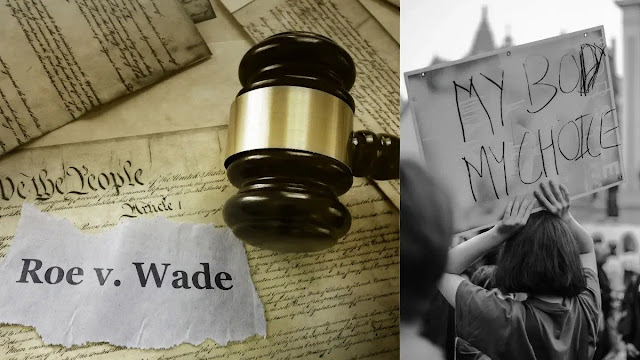Recently, a draft of a U.S. Supreme Court decision regarding Roe v. Wade was leaked to the press. The draft of the decision indicates that the court will overturn the previous decision that made abortion a constitutional right. This would allow individual states to create their own laws regarding the legality of abortion and restrictions limiting access to the procedure.
What is Roe v. Wade?
Roe v. Wade is the name of the lawsuit that eventually made its way to the Supreme Court and led to a decision by the court to make abortion a right. “Jane Roe” was actually Norma McCovey, a 22-year-old unemployed single mother who sought an abortion in Texas when she became pregnant with her third child. She sued the state of Texas and challenged the state’s law that only allowed abortion when it was the only way to save the mother’s life. Roe argued that the law was vague and a violation of her constitutional right to personal privacy.
As the district attorney of Dallas County, Texas, it was up to Henry Wade to enforce the law and defend the state. Eventually, the Supreme Court had to make the final decision about whether the Constitution recognizes a woman’s right to end her pregnancy through abortion. Ultimately, the court decided in a 7-2 vote that the Constitution did protect a woman’s right to abortion, but that the government also had a responsibility to protect human life. As a result, the court concluded that abortions within the first trimester were legal.
In the years following Roe v. Wade, there were many challenges to the decision. In 1992, the court issued another important decision in the case of Planned Parenthood v. Casey. Pennsylvania wanted to include a 24-hour waiting period in the abortion law. Another conservative court voted to protect abortion rights, but they also opened the door for states to implement their own restrictions.
Why is the Supreme Court Ruling on Abortion Rights Again?
The current case that is scheduled to be decided this summer is Thomas E. Dobbs, State Health Officer of the Mississippi Department of Health v. Jackson Women’s Health Organization. In 2018, the state passed an act that bans abortions after 15 weeks, which is significantly earlier than the 24-28 week standard outlined in Roe v. Wade. The Jackson Women’s Health Organization sued the state and two courts have already declared the law unconstitutional. However, the Supreme Court decided to review the case.
While it can be difficult to wade through all the legalese, essentially, a decision to uphold the law would undermine both the Roe v. Wade and Casey decisions. Similar laws have been struck down in other states, but the recent leak of the decision draft revealed that the court plans to rule in favor of Mississippi.
What Would a Roe v. Wade Reversal Mean for Nurses?
Nurses, along with other medical professionals who provide abortion services could find themselves being legally targeted by state laws. For example, a Texas law that is already on the books allows people to file civil lawsuits against providers. Alabama is also looking to enact a law that would hold physicians criminally responsible with a maximum sentence of life in prison. Essentially, a medical procedure that has been legally performed for decades could now put medical professionals in both civil and criminal danger and the laws and penalties would vary from state to state.
In many cases, nurses are the first point of contact and information for patients looking for information about reproductive health. As part of their own education, nurses are trained to provide comprehensive information and care to each patient. More restrictions around abortions have the potential to create a barrier that would prevent nurses from fully and safely executing their responsibilities.
What Would a Roe v. Wade Reversal Mean for Healthcare?
If the Supreme Court declares the right to physical autonomy is not an innate human right and not protected by the Constitution, then states would have the authority to decide their own laws and restrictions. Currently, 13 states have already passed “trigger laws” which would ban abortions the moment Roe is overturned. Inversely, 17 states along with Washington DC have taken steps to protect abortion rights.
With different states and jurisdictions implementing different laws and restrictions, it is going to create a confusing landscape for healthcare providers to try and navigate. Some anti-abortion states are making sure that doctors won’t be able to transfer patients to other states to receive the procedure. If they violate the law, they could face a variety of consequences that would include taking away their ability to practice medicine. Ultimately, the healthcare system and providers will be facing a legal minefield.
What Has Been the Public Response?
The American Nurses Association, American Medical Association, and the U.S. Department of Health and Human Services are just three major organizations that have made public statements in support of everyone’s right to make personal and private decisions about their reproductive health. As you might expect, people are taking to social media to share their own stories and opinions about this divisive topic.
TikToker Rocio Castillo posted a video talking about her own experiences saying, “I'm a woman who's had two abortions. It was hard, but I don't regret it."
On Twitter, @allycatra87 asked “Overturning Roe v. Wade will not eliminate abortions. It will eliminate safe abortions. How many people will be injured and die because they couldn't choose their own path?"
While the leak regarding the Supreme Court decision was technically only a draft, it has set off a firestorm on all sides of the issue. The final decision won’t be handed down until the end of June or early July. Until then and well after, nurses, healthcare providers, elected representatives, and the public will be continuing the fight; both for and the right to make personal decisions regarding reproductive health.
Source: nurse.org







0 comments:
Post a Comment